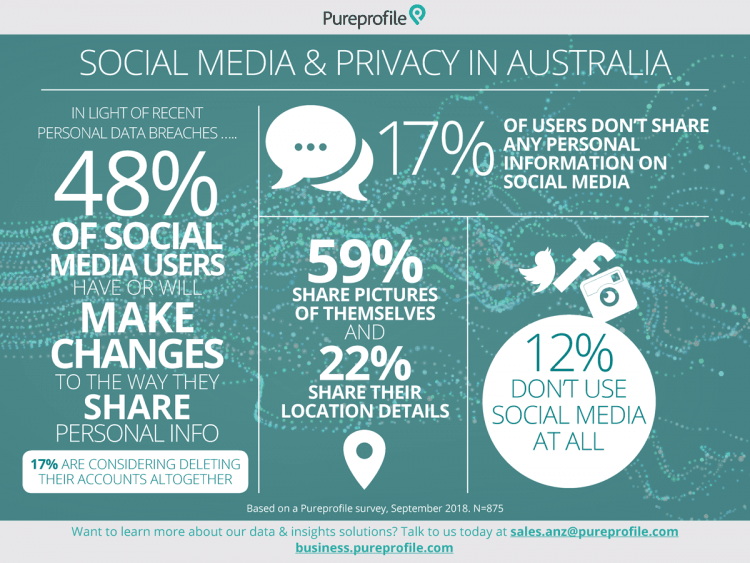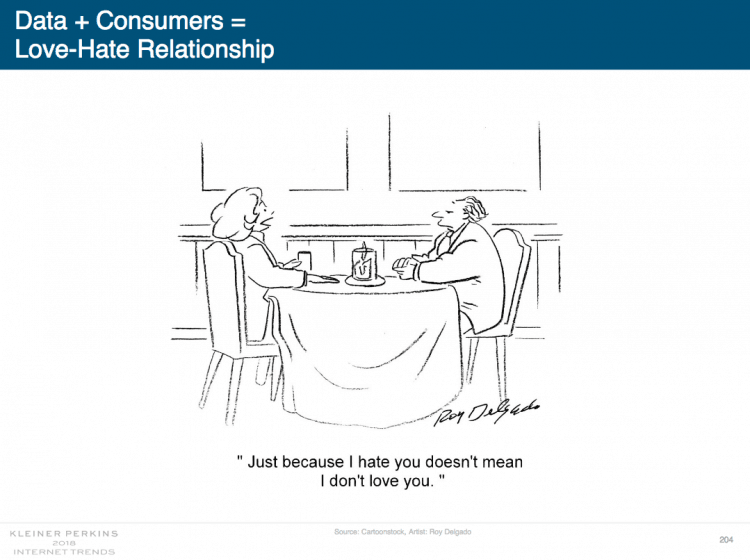Originally published on Which-50
2018 was the year consumer concerns over privacy and how their data is used started to cause headaches for businesses which had convinced themselves their customers were satisfied with the service they were receiving in exchange for their information.
Throughout the year a series of global events have lead to the industry to reflect: do consumers really know what’s happening to their data? And if they did, would how exactly would their behaviour change?
Early in the year the Facebook-Cambridge Analytica revelations were a watershed moment, putting online tracking and ad targeting under the microscope. Investigations into the scandal, which have popped up around the world, as well as the introduction of Europe’s General Data Protection Regulation (GDPR) and the notifiable data breach laws here in Australia, has added regulatory pressure to the situation.
Last week Which-50 hosted a webinar with four of Australia’s digital leaders: Mercer chief customer officer Cambell Holt, Fairfax chief product officer Jessica Ross, Moet Hennessy head of digital Gavin Merriman and Pureprofile head of revenue and operations Ben Sharp. All agreed that concerns over consumer privacy will only get louder in 2019.
When asked if consumers really know what’s going on with the data? Moet Hennessy’s head of digital, Gavin Merriman, was quick to respond.
“Not even a clue. Not even the people that work at digital advertising fully understands how much data is collected and how it’s used,” Merriman said.
Ben Sharp, an ad tech veteran with close to 20 years experience, admits to skimming the Facebook privacy policy, but not reading it in full.
“I think there are very, very few people in our industry, let alone consumers, that actually understand how their data is being used,” Sharp said.
A Fair Value Exchange?
The increased scrutiny brings the discussion back to a core tenet of customer experience: the relationship between brand and consumer ought to resemble a value exchange.
Sharp argued that exchange is more opaque than a decade ago.
“I think if we rewind 10 years — I ran a publishing business — we used some data to target ads, it was predominantly content- or context- based. There seemed to be a fair value exchange: consumers went to our site, they read some content and they didn’t need to pay for it.”
“What seems to be happening now is, that the value exchange for a consumer, especially in social media, is hidden. A consumer actually doesn’t know if they’re sharing their data by connecting up all these apps, including some banking or transactional data, how’s that actually been used?”
That ecosystem is causing larger numbers of consumers to question how their data is actually being used, Sharp said.
“I think that fair value exchange and transparency of how data is used is really important and probably what will become a growing conversation over the next couple of years,” Sharp said.
Research conducted by Pureprofile in the wake of the Cambridge Analytica scandal reinforces this view. A survey conducted by the data and insights company in May found in 26 per cent of Australian respondents said they had either deleted Facebook or adjusted their privacy settings.
More recently a broader Pureprofile survey on social media and privacy found 48 per cent of social media users have, had or will make changes to the way in which they share their personal data and 17 per cent of those said they were considering deleting their social accounts altogether.
View full infographic here.
“I think that in 12 months time we will very much be talking about trust and transparency of consumer data. It’s happening at the moment, but I think that’s only going to escalate more and more,” Sharp said.
Jess Ross, chief product officer at Fairfax Media agreed.
“While the majority of people still are not particularly wise to how businesses are using their data that is going to change,” Ross said.
“There is a growing awareness of the need to protect personal data and to actually pay more attention in that area.”
She referenced the introduction of GDPR and Apple’s changes to the Safari browser which block third party cookies, as examples of the shifting business environment. On the consumer side, concerns are being expressed through the increasing use of ad blockers.“
I do see a growing use of ad blockers and people even using ad blockers to switch off analytics tracking,” Ross said.
For publishers this means they have a less complete picture of how their audience is consuming their products.
“It’s a huge issue for businesses because we need that data, frankly. We need that data to build better products for them.”
Mary Meeker touched on this dilemma in her state of the internet address earlier this year, warning that tech companies now face a privacy paradox, illustrated in the cartoon below. The concept explores the question: How does a brand balance privacy with the need to collect data to deliver a level of personalisation through its products and services?
“I think that the responsible use of data and privacy as a value point in a proposition is going to become of growing importance,” Ross said.
Cambell Holt, chief customer officer at Mercer, said if organisations focus on the value exchange, consumers tend to willingly uphold their end of the bargain.
“An organisation needs to stay focused on how much value the consumer is getting when they give you their data. Actually, I think most consumers I’ve observed who will freely give data as long as there’s actually positive value exchange involved,” Holt said.
“It only starts to become an issue, as we’ve seen in recent times, when actually the consumer is given cause to pause for thought around whether or not they are actually getting enough value from provision of my data.”
Gavin Merriman, of Moet Hennesy, was bullish on the role blockchain will play in this space. He believes the distributed ledger technology will give consumers more visibility over where and how their personal data is being used. This, in turn, will allow them to make a judgement about whether or not the value exchange is worth it.
“Every time you use an app, it’s not free. It’s only free because you exchange your data in return for it,” he said.
“I actually personally think that almost all of the platforms we’ve got, well, not next year, but over the next few years will be replaced by blockchain-based ones where you do get that total visibility of exactly who does and doesn’t get your data.”
2019: Consumers Hold All The Cards
Looking ahead, Holt believes consumers will continue to amass power, which was been rapidly shifting away from brands in the smartphone era.
“In 2019 customers will be more powerful than they ever have been,” Holt said. “And that’s fuelled by data, that’s fuelled by technology.”
Wrapped up in that are consumer concerns over ethics and data, which aren’t going away any time soon, he said.
“Ethics and data is an issue that’s been waiting to explode … but I think this actually becomes a really significant issue for marketers and customer experience professionals going forward,” Holt said.
These trends will also have an impact on the online advertising industry, according to Fairfax’s Ross.
“I think we’re going to see a big shift in digital advertising itself,” she said.
“We’re on the cusp of an entire generation of businesses, mostly small, but who don’t believe in the value of traditional display and who view everything socially,” she said.
“And we’ve got a whole lot of customers of the other end who think that targeted advertising is creepy and that it’s a public health risk and that we have a surveillance economy. So think there’s going to be a big shift there in what advertising looks like as companies respond to that.”
Concerns over trust, privacy and the looming threat of tighter regulation means businesses will have to re-examine what they are offering consumers in return for the data which fuels their decision making. If they don’t, they risk the sand they built their digital businesses on washing away beneath their feet.





